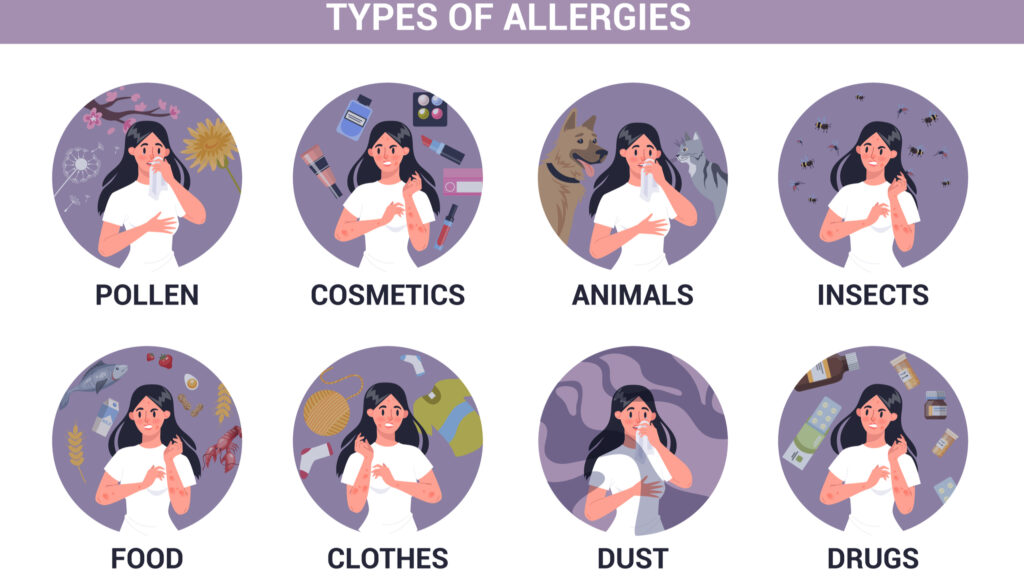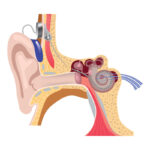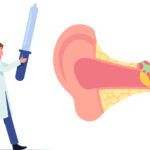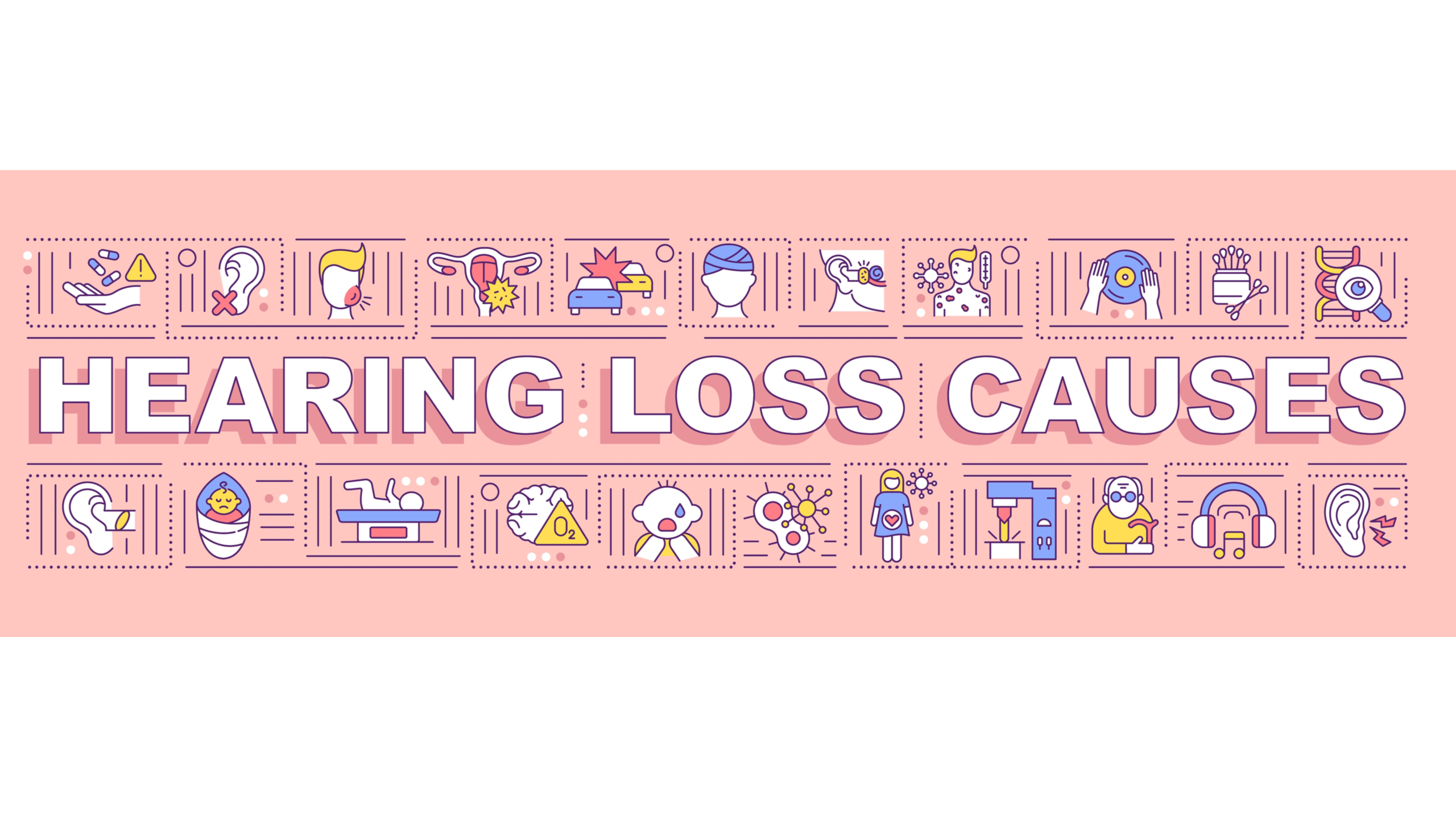Comprehensive Guide to the Causes of Sudden Deafness: Diagnosis, Treatment, and Prevention
There are a few common causes of sudden deafness and the underlying medical conditions that may cause it. These include genetic, viral, and allergic causes. Regardless of the cause, treatment is crucial in restoring hearing and leading a normal life. Here are a few tips to get started. Also, be sure to let your doctor know of any medications or diagnosed medical conditions that you may be taking. In most cases, the sooner you seek treatment, the better your chances are of recovering quickly.
Idiopathic sudden sensorineural hearing loss

Idiopathic sudden sensorineural hearing (ISSNHL) is a disorder that has no obvious triggering factor, reaches its maximum deficit during a short time, and demonstrates variable recovery. It is defined as a hearing deficit greater than 30 decibels over three consecutive frequencies without a specific underlying medical or vascular condition. Although the etiology of ISSNHL is not known, the condition affects as many as 27 people per 100,000 people annually.
There are several ways to treat ISSHL, including steroid therapy and surgery. In a recent systematic review, researchers evaluated the effectiveness of steroid treatment in ISSHL. Patients were included if they had experienced a hearing loss ranging from 30 dB to 20 dB across three frequency ranges, and had a history of fluctuating sensorineural hearing loss. Other modalities that have been tested include vasodilators, antivirals, and hyperbaric oxygen.
Symptoms of idiopathic sudden sensorineural hearing loss include hearing loss in one or both ears within a matter of days. It is important to seek medical attention immediately for this condition, as a reversible and permanent solution may be required. Hearing aids may help people with idiopathic SNHL, while drug therapy is an option for some. There are several different causes of idiopathic SNHL, and there are ways to manage each type.
Genetic causes
Hereditary causes of sudden deafness include mutations in genes that cause the inner ear to deform. This deformity may result from a mutated gene in the sensory hair cells of the inner ear. These cells play a critical role in hearing, so if the gene mutation is present, the inner ear may deform and cause sudden deafness. Genetic counseling is also available for these cases and is free on the NHS. Genetic counselling requires a referral from a pediatrician or GP. The services are confidential and are offered free of charge.
There are two types of inherited hearing loss. Nonsyndromic (without other symptoms) and syndromic (associated with other symptoms). Depending on the pattern of inheritance, they can be classified as autosomal recessive or autosomal dominant. Approximately 30% of cases are syndromic. However, there are more subtypes. These are described below. While some cases of inherited hearing loss are not congenital, others are acquired.
Researchers are still working on identifying the genes that cause age-related hearing loss, but they are gaining ground with each new discovery. In the meantime, identifying those at high risk for the condition can help people make better lifestyle choices. They can also develop strategies to preserve their hearing. The good news is that it is possible to prevent inherited hearing loss. While these are only a small proportion of the causes of sudden deafness, they can help you protect your hearing.
Allergic causes

In allergic people, the ears can be particularly sensitive to allergens. Allergies can cause itching, itchiness, pressure, dizziness, and even hearing loss. Usually temporary, these symptoms can be frightening. Luckily, most allergic causes of sudden deafness are not serious. Read on to find out more. There are many possible causes of sudden deafness. Allergic rhinitis and hay fever are not necessarily mutually exclusive.
Allergies can also cause temporary hearing loss, and they can lead to mental confusion as well. Affected individuals may also experience swelling and congestion, masking the sudden change in hearing. The ears rely on sound waves reaching the inner ear, where they are translated into a language that your brain understands. If your allergies cause your ears to swell, the fluid pressure around the eardrum changes, preventing sound from traveling to the inner ear. In addition to this, the body may also produce more earwax, blocking sound.
Allergies to seasonal pollen and mold are among the most common causes of hearing loss. They can cause watery eyes, runny nose, scratchy throat, and wheezing, among other symptoms. In severe cases, however, allergies can cause permanent deafness. Fortunately, these symptoms usually go away once the allergy or infection is cleared up. But if the condition persists, a physician should be consulted to determine the underlying causes.
Viral causes
Viruses are strong suspects for the causes of sudden sensorineural hearing loss. Some of the viral causes of sudden deafness include the herpes virus, varicella-zoster virus, adenovirus, and hantavirus. Although many studies have shown no link between viral infections and sudden deafness, some of these results could be due to seasonal or geographical differences in the disease. Others suggest that viral infections may trigger inflammatory mechanisms that are not associated with sudden deafness.
Another cause of sudden hearing loss is the Varicella Zoster Virus (VZV). This DNA virus belongs to the herpes family, and the symptoms are similar to those of reactivated VZV. This virus may cause nerve problems or hearing loss. Corticosteroids and other medications are effective in treating these cases. There are several other RNA viruses that can cause sudden deafness.
A blockage in the cochlea may be the most common cause of sudden deafness. In this case, the affected ear is unable to receive blood and oxygen. Symptoms of sudden sensorineural hearing loss are usually apparent when the sufferer wakes up. Others lose their hearing over several hours, or suddenly. Whether your hearing loss is sudden or gradual, the first step toward recovery is to seek expert care.
While the exact type of virus responsible for SSNHL is unknown, it has been implicated in some cases. While there are no studies to support the association of SSHL and virus infection, case reports and animal experiments have shown that vascular occlusion can cause sudden deafness. In addition, viruses can also cause severe deafness and are responsible for 40% of all congenital acquired sensorineural hearing loss.
Blood clots causes
Several causes of sudden deafness have been identified, including blood clots and thrombosis of the cochlear artery. People who are overweight or elderly are at high risk of experiencing this condition. Blood clots may also be caused by viruses, bacterial infections, or hereditary conditions. These factors make determining the cause of sudden deafness difficult. Researchers often avoid using extensive imaging and blood tests to diagnose this condition.
Treatment options
Although the causes of sudden sensorineural hearing loss are still unclear, there are various treatment options for patients with this condition. The first line of treatment is the administration of steroids or antivirals, followed by a comprehensive workup that includes MRI and blood tests. While a significant portion of patients recover without further treatment, there are some indications of poorer prognosis, including the severity of the loss, the audiogram shape, and the association with vertigo and age. In severe cases, surgery may be considered, with cochlear implants or other surgical procedures.
In rare cases, earwax buildup may be the cause of sudden deafness, and removing this buildup will restore hearing to normal. However, it is important to seek medical advice before trying this procedure, as you could cause further damage to your ears. The doctor will likely recommend this option if you have any other health issues. Listed below are some of the more common treatment options for sudden deafness.
Sudden sensorineural hearing loss can occur in one or both ears. It can happen over several days or weeks and is considered an emergency by healthcare professionals. Generally, sudden hearing loss is greater than 30 decibels across three contiguous frequencies and may be experienced in one ear or both. It is best to seek medical advice if the loss is severe and unreversible. If you notice a sudden hearing loss, contact your doctor immediately. It is crucial that you get the proper treatment for sudden deafness so that you can avoid complications or long-term consequences.
Conclusion
In conclusion, sudden deafness can be caused by a variety of factors, including genetic, viral, allergic, and blood clotting conditions.
The most common cause is idiopathic sudden sensorineural hearing loss (ISSNHL), which is a disorder with no known triggering factor. While the exact causes of sudden deafness are still unclear, there are various treatment options available, including steroid therapy, antivirals, and surgery.
It is important to seek medical attention immediately if you experience sudden hearing loss to increase your chances of recovery. In addition, identifying those at high risk for inherited hearing loss can help people make better lifestyle choices and develop strategies to preserve their hearing.
Sources
- National Institute on Deafness and Other Communication Disorders. Sudden Deafness. Retrieved from https://www.nidcd.nih.gov/health/sudden-deafness
- Mayo Clinic. Sudden Hearing Loss. Retrieved from https://www.mayoclinic.org/diseases-conditions/sudden-hearing-loss/symptoms-causes/syc-20350419
- Centers for Disease Control and Prevention. Hearing Loss. Retrieved from https://www.cdc.gov/ncbddd/hearingloss/index.html







